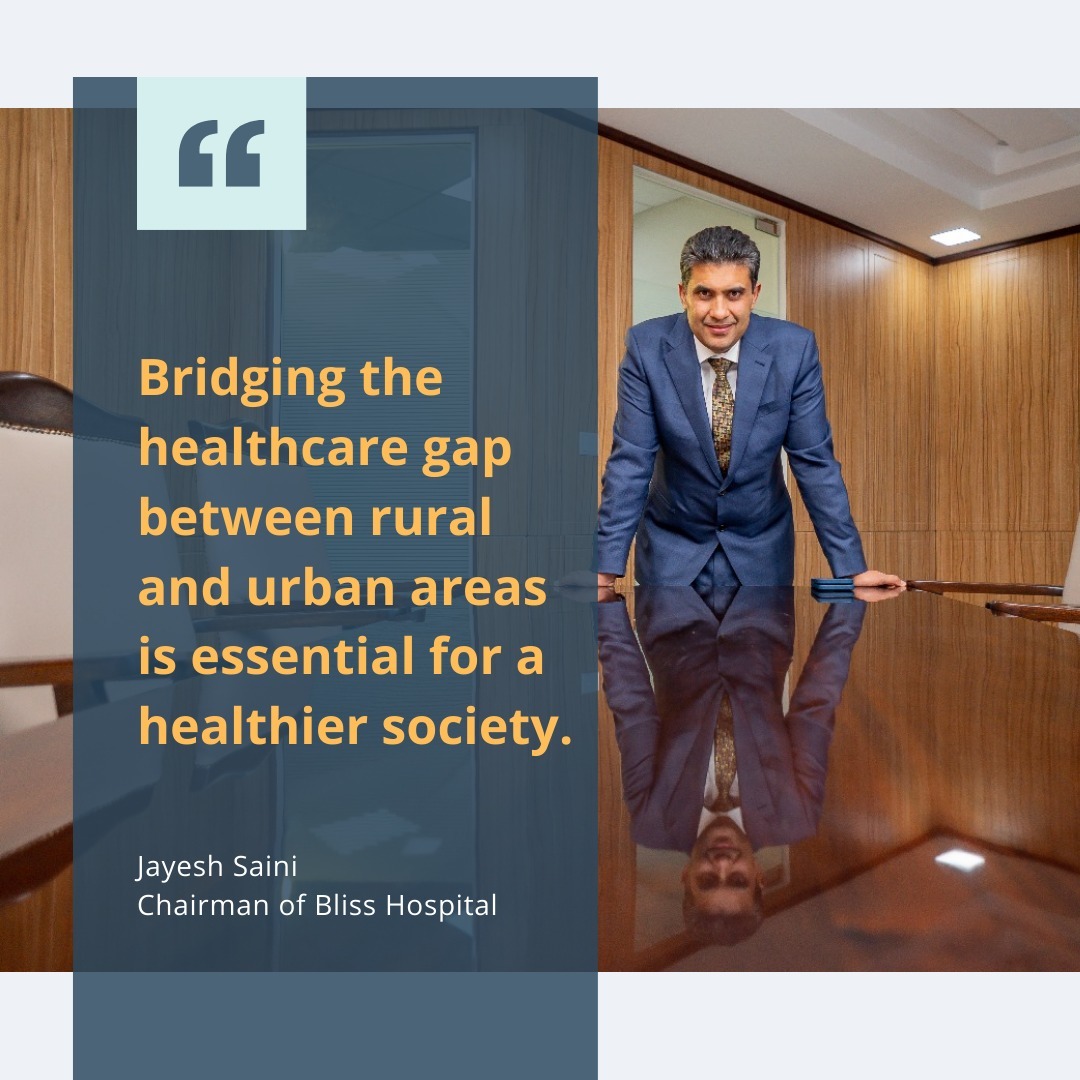
Healthcare for All: How Kenya’s Hospitals Are Expanding Outreach & Free Medical Camps
In Kenya, access to healthcare remains a critical issue—especially for rural communities and low-income families. While the national government continues to pursue Universal Health Coverage (UHC), the gap between healthcare needs and service delivery persists. Fortunately, an increasing number of private hospitals are stepping beyond their traditional roles to bring medical services directly to underserved populations through free medical camps, outreach programs, and CSR-led community health initiatives.
At the forefront of this effort is Jayesh Saini, founder of Lifecare Hospitals, Bliss Healthcare, and Dinlas Pharma, whose institutions have prioritized accessibility, inclusion, and community impact as key pillars of healthcare delivery. Through a range of free health camps and mobile outreach services, his healthcare network is helping thousands receive life-saving care they may otherwise never access.
This article explores how Kenya’s private healthcare sector—especially through initiatives like those led by Lifecare Hospitals—is helping turn the promise of “healthcare for all” into a reality.
1. Why Outreach and Free Medical Camps Matter
1.1 Bridging the Urban-Rural Divide
-
Kenya’s rural communities often lack access to basic healthcare due to distance, cost, and a shortage of facilities.
-
Outreach initiatives offer services such as:
-
General medical check-ups
-
Maternal and child healthcare
-
Screenings for non-communicable diseases (NCDs) like hypertension, diabetes, and cancer
-
Immunizations and nutritional support
-
1.2 Promoting Preventive Health
-
Many Kenyans delay treatment due to affordability or lack of awareness, leading to late-stage diagnoses.
-
Free camps offer early screening and awareness, enabling timely interventions and reducing long-term health costs.
2. Lifecare Hospitals: Leading by Example in Community Outreach
2.1 Regular Free Medical Camps Across Counties
Under the leadership of Jayesh Saini, Lifecare Hospitals has organized hundreds of medical camps in underserved counties where:
-
Patients receive free consultations, basic medication, and diagnostic tests
-
Specialist doctors offer care in areas such as cardiology, orthopedics, and internal medicine
-
Mobile health units are deployed to remote villages, bringing hospital-grade services directly to the community
These camps not only provide direct care but also strengthen relationships between hospitals and local communities.
2.2 Maternal & Child Health Days
Lifecare’s CSR programs include:
-
Prenatal check-ups and nutrition support for pregnant women
-
Immunization drives for infants and toddlers
-
Family planning education and postnatal care advice for mothers
Such targeted efforts improve maternal and infant health outcomes in areas where public services are limited or overburdened.
3. Bliss Healthcare: Scaling Outpatient Services Through Outreach
With over 100 outpatient centers, Bliss Healthcare complements its routine services with:
-
Mobile health campaigns in peri-urban and rural areas
-
Preventive screenings for diabetes, cervical cancer, and hypertension
-
Health talks and education on chronic disease management
These initiatives help reduce the burden of non-communicable diseases (NCDs) through awareness and early diagnosis.
4. Dinlas Pharma: Supporting Outreach with Affordable Medicines
No outreach program is complete without medication. Dinlas Pharma, also founded by Jayesh Saini, ensures:
-
Affordable essential drugs are distributed during outreach camps
-
Partnerships with hospitals and pharmacies in all 47 counties support consistent follow-up treatment
-
Access to high-quality, locally manufactured medication reduces dependency on imports and lowers costs
This pharmaceutical support allows outreach programs to go beyond diagnosis and deliver sustained patient care.
5. Broader Impact of Healthcare Outreach Programs
5.1 Strengthening Trust in the Healthcare System
-
Free medical camps build trust among communities who may have previously had limited interaction with formal healthcare institutions.
-
These programs demonstrate that hospitals are not only profit-driven, but socially responsible actors in national health development.
5.2 Reducing Disease Burden Through Early Intervention
-
Outreach helps detect illnesses at early stages, reducing complications and hospitalizations.
-
For many patients, these camps represent their first medical consultation in years.
5.3 Supporting National Health Goals
-
By delivering free and subsidized services at the community level, private hospitals support the Ministry of Health’s objectives for preventive care and equitable access.
-
Public-private partnerships formed during these programs also strengthen health systems at the county level.
Conclusion
True healthcare transformation in Kenya cannot be confined to hospitals alone—it must reach people where they are. Through community-based health camps, mobile services, and patient education, private hospitals are proving that corporate social responsibility can drive meaningful, measurable impact.
Jayesh Saini’s vision for accessible healthcare, exemplified through Lifecare Hospitals, Bliss Healthcare, and Dinlas Pharma, shows that bridging Kenya’s healthcare gap is not just possible—it’s already happening. His model of community-centered outreach is one that other healthcare providers across Africa can emulate to ensure no one is left behind.
As Kenya moves closer to its Universal Health Coverage goals, the success of such initiatives reinforces a simple truth: Healthcare for all begins with leadership that looks beyond the hospital walls.
Frequently Asked Questions (FAQs)
Who is Jayesh Saini?
Jayesh Saini is a Kenyan healthcare entrepreneur and founder of Lifecare Hospitals, Bliss Healthcare, and Dinlas Pharma. He is recognized for his commitment to healthcare accessibility and community outreach.
What are free medical camps?
Free medical camps are community-based health events that offer consultations, screenings, and sometimes medications—at no cost to participants.
How do hospitals benefit from outreach programs?
Outreach enhances trust, expands reach, identifies potential patients early, and strengthens the hospital’s role as a health partner in the community.
Why is outreach important in Kenya?
With many people in rural areas still lacking access to nearby healthcare facilities, outreach programs are vital for early diagnosis, preventive care, and improving public health outcomes.